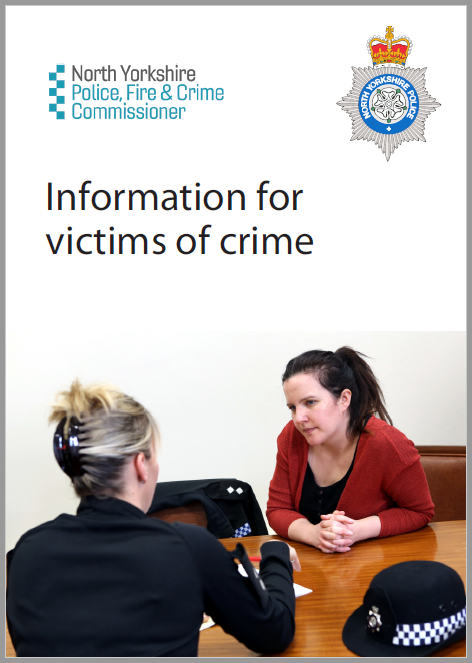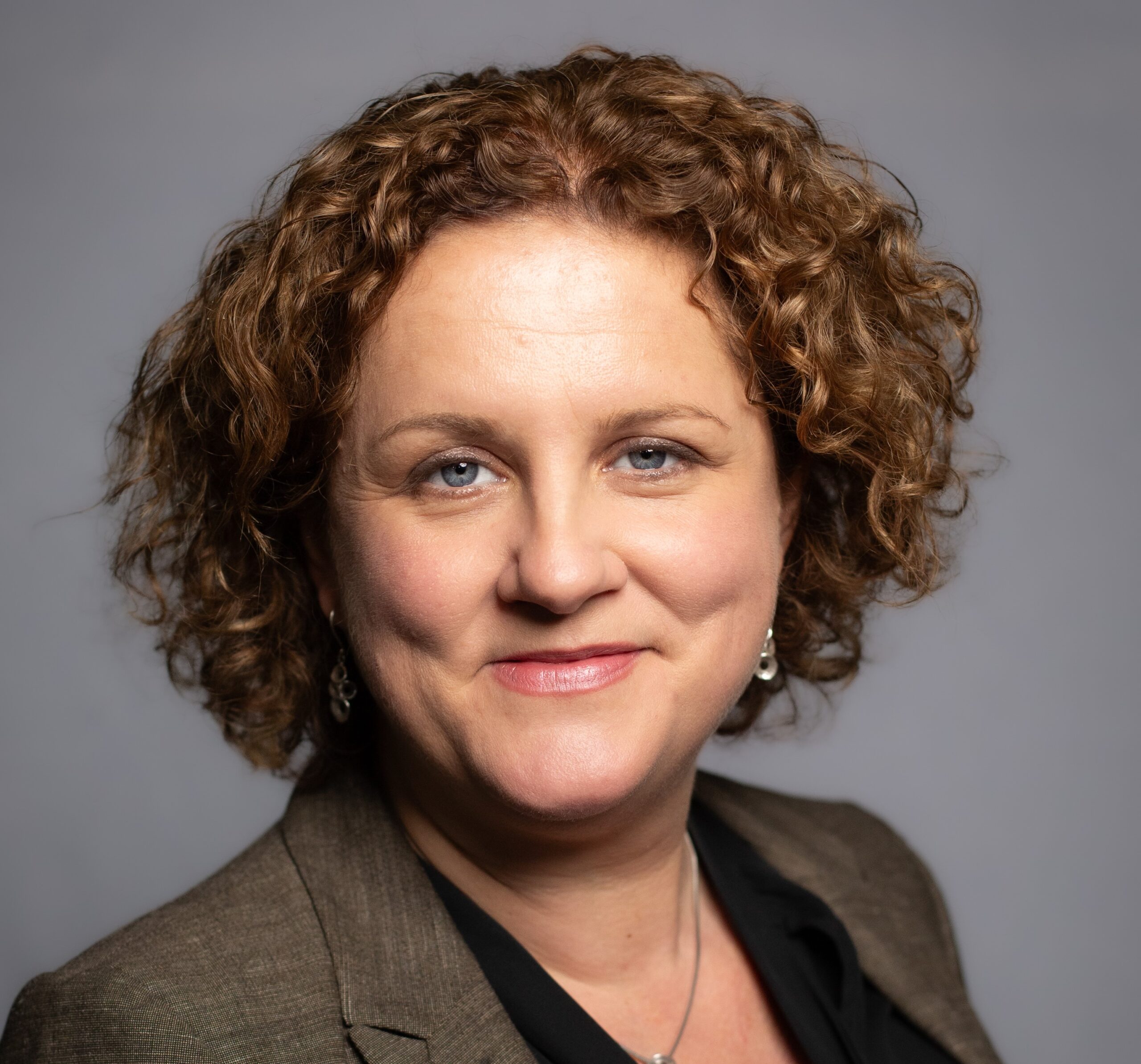Support for victims
Whether you have been a victim of crime and need help to recover, want to have a say in how anti-social behaviour offenders make amends or feel that you are just not being listened to, help is available.
If you are isolated with abusive people whose behaviour is escalating due to increasing uncertainty, pressure on finances and cramped conditions, help is available.
Please see our page Help if you, or someone you know is experiencing domestic abuse
On this page
- Supporting Victims
Helping people living in North Yorkshire to cope after crime, and get their lives back to normal as soon as possible. - Restorative justice
Bringing those harmed by crime or conflict and those responsible for the harm into communication, enabling everyone affected by a particular incident to play a part in repairing the harm and finding a positive way forward. - Community Remedy
Having your say in how anti-social behaviour offenders make amends - ASB Case Review
If you have reported three incidents of anti-social behaviour within a six-month period to the police, the local council or your housing provider (if you have one), you can request for organisations to collectively review your case. - NHS mental health support: victims of terrorism
Advice if you are worried about your mental health as a result of an attack.
Supporting Victims
Support for anyone affected by crime
Supporting Victims helps people living in North Yorkshire to cope after crime, and get their lives back to normal as soon as possible.
Supporting Victims provides support for anyone affected by crime. That includes people who have been a victim of crime themselves, people who have suffered a bereavement as a result of crime, people who are the family spokes person for a victim, the parents or guardians of victims under 18, and members of staff where their business has been subject to crime.
If you have suffered as the result of a crime and you are finding it hard to cope, Supporting Victims can help you – even if you have decided not to report that crime to the police.
Supporting Victims – How does it work?
The first step is to get in touch with the Supporting Victims team.
You can do this by
- phone: 01609 643 100 or by
- email: [email protected]
- visit: www.SupportingVictims.org to find out more
Experienced Supporting Victims Coordinators will listen to you, and will ask you a few questions to help them understand what has happened, and how you have been affected by crime. They will then tell you what they can do to help, or explain what support services you can access from other organisations, and build this into a personalised plan.
 Supporting Victims – What help can they offer?
Supporting Victims – What help can they offer?
The help provided is tailored to you, and your circumstances. It might include:
- Information about the criminal justice process
- Referral to a Supporting Victims Volunteer based in your community, who can give you guidance and emotional support to get your life back on track
- Signposting to another support organisation in North Yorkshire that can provide the help you need
- Referral to one of the four Supporting Victims specialist services. These include:
- Practical and emotional support if you have been a victim of sexual or domestic abuse
- Practical and emotional support if you have been a victim of another type of very serious crime, or if you have been persistently targeted or if you feel vulnerable or intimidated
- Counselling, where this would benefit your recovery
- Victim/offender conferencing – where you could meet your offender to explain the impact of their actions on you, supported by a professional
Supporting Victims – Getting in touch
If you live in North Yorkshire, you have been a victim of crime, and you would like some help coping, Supporting Victims is there to help you.
- phone: 01609 643 100
- email: [email protected]
- visit: www.SupportingVictims.org
- Download: Booklet – Information for Victims of Crime – Feb 2022
Restorative Justice
Facilitating communication between victims and offenders
Restorative justice gives victims the chance to meet or communicate with their offenders to explain the real impact of the crime – it empowers victims by giving them a voice. It also holds offenders to account for what they have done and helps them to take responsibility and make amends.
Restorative justice is about victims and offenders communicating within a safe environment to talk about the harm that has been caused and finding a way to cope and recover from that harm.
Government research demonstrates that restorative justice provides an 85% victim satisfaction rate, and a 14% reduction in the frequency of reoffending.
For victims, meeting the person who has harmed them can be a huge step in moving forward and recovering from the crime.
For offenders, the experience can be incredibly challenging as it confronts them with the personal impact of their crime.
How does it work?
Victim-led restorative justice in North Yorkshire, where a victim meets their offender, are led by a facilitator who supports and prepares the people taking part and makes sure that the process is safe. Sometimes, when a face to face meeting is not the best way forward, the facilitator will arrange for the victim and offender to communicate via letters, recorded interviews or video.
For any kind of communication to take place, the offender must have admitted to the crime, and both victim and offender must want the interaction to take place.
Restorative justice can be used for any type of crime and at any stage of the criminal justice system, including alongside a prison sentence.
The Restorative Justice Council advocates the use of safe, high quality restorative justice wherever and whenever it is needed.
Restorative justice is increasingly being used outside of the criminal justice system, where it is referred to as restorative practice.
Restorative practice is effective in building strong relationships and can help prevent and manage conflict in schools, children’s services, workplaces, hospitals, prisons and communities.
For more information or to start the process, contact:
Community Remedy
Following public consultation, Community Remedy became a key element of the Anti-Social Behaviour (ASB), Crime and Policing Act 2014. Mayors and Police and Crime Commissioners are responsible for the ownership and reviewing of the document, in partnership with their Chief Constables.
The aim of Community Remedy is to enable victims of low-level crime and ASB to have a greater say in how offenders should be held account for their actions.
The Community Remedy document lists the available actions that can be carried out by a person who has engaged in anti-social behaviour or committed an offence, admits to their involvement and is to be dealt with for that behaviour or offence without court proceedings.
Each local policing body must have a Community Remedy document for its area, informed by consultation and promoting public confidence in the out-of-court disposal process.
In line with upcoming changes to Part 6 of the Police, Crime, Sentencing and Courts Act 2022 and the codes of practice that will sit alongside, the York and North Yorkshire Mayor and Chief Constable of North Yorkshire Police (NYP) have taken the opportunity to review North Yorkshire’s Community Remedy document and options. The review has informed this final document which outlines the options available across North Yorkshire and York.
If you have reported three incidents of anti-social behaviour within a six-month period to the police, the local council or your housing provider (if you have one), you can request for organisations to collectively review your case.
The anti-social behaviour case review, previously known as a community trigger, is a powerful tool which allows victims to request action if they have reported multiple incidences of anti-social behaviour but are unhappy with the response they received.
The case review should ensure victims:
- feel heard
- give them an understanding of what is being done to help them
- build their confidence in the agencies involved
A case review is not about saying who should be blamed – it is to focus on problem-solving the issue using the expertise of the partner agencies.
The review cannot be used to report general acts of crime, including hate crime.
For more information visit North Yorkshire Councils website here: https://www.northyorks.gov.uk/community-and-volunteering/community-safety/anti-social-behaviour-case-review
For more help with anti-social behaviour, visit http://asbhelp.co.uk/.
NHS mental health support: victims of terrorism
If you are worried about your mental health as a result of an attack please see this NHS trauma leaflet. It outlines common reactions, simple suggestions on how to cope and ways in which children may be supported.
Many symptoms may be a normal response to a terrible experience and will reduce over time. If your symptoms are severe and you are in distress or they last longer than 4 weeks, please read the information below.
Continuing mental health support
There are mental health treatments available through the NHS to help people deal with the effects of very distressing events.
Many people do not go on to develop mental health conditions and will recover naturally, however if your symptoms are severe or continue beyond 4 weeks, this may indicate the need for support from a mental health professional.
The information on the NHS Choices website will outline possible symptoms and describe how to seek help. Please visit your GP who will be able to provide advice and refer you on to the appropriate local NHS mental health service for assessment and treatment. Children and young people may also access NHS help by visiting their GP, and schools may be able to provide support or refer them to local services.
Addressing violence against women and girls
An overarching strategy to address violence against women and girls across North Yorkshire and York has been published by the Office of Police, Fire, Crime and Commissioning
It sets out a collective commitment from groups and organisations across the area, including North Yorkshire Police, North Yorkshire Fire and Rescue Service, North Yorkshire County Council and City of York Council, and has been written collaboratively and following extensive consultation with these bodies and, crucially, victims and survivors themselves.
- Find out more: Addressing violence against women and girls

